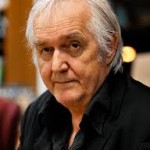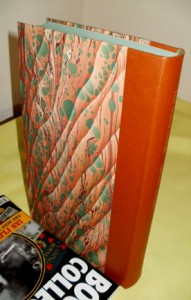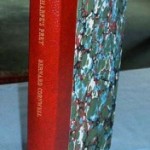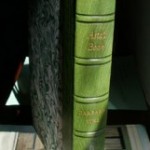Henning Mankell, The White Lioness
£70.00
The Kurt Wallander police detective stories by Henning Mankell is one of the most liked series of recent years. Wallander is the detective with heart and soul. The character of Wallander has a special quality, at work he has the bit between his teeth and wont let go. Then we become acquainted with his personal problems – his health condition is almost a metaphor for the state of modern Sweden. This Scorpion edition contains a lovely appreciation by psychological suspense writer Minette Walters.
In Stock: 3 available

 Some of the most trenchant social reality novels have come from the Swede Henning Mankell. The deserved winner of the CWA Gold Dagger with Sidetracked, it was a turning-point in the reception of Scandinavian crime with both readers and publishers in the Anglo-Saxon world. As a consequence a good deal more European crime fiction was translated into English. Inevitably, “Wallander is one of the great creations of modern crime fiction” said Barry Forshaw, and further “overweight, diabetes-ridden and with all the problems of modern society leaving scars on his soul”. He made it to the TV screens with Kenneth Branagh in the lead; but not before the books had been highly successful in a home-grown Swedish series. Mankell is married to Eva Bergman, daughter of legendary Swedish film maker Ingmar Bergman.
Some of the most trenchant social reality novels have come from the Swede Henning Mankell. The deserved winner of the CWA Gold Dagger with Sidetracked, it was a turning-point in the reception of Scandinavian crime with both readers and publishers in the Anglo-Saxon world. As a consequence a good deal more European crime fiction was translated into English. Inevitably, “Wallander is one of the great creations of modern crime fiction” said Barry Forshaw, and further “overweight, diabetes-ridden and with all the problems of modern society leaving scars on his soul”. He made it to the TV screens with Kenneth Branagh in the lead; but not before the books had been highly successful in a home-grown Swedish series. Mankell is married to Eva Bergman, daughter of legendary Swedish film maker Ingmar Bergman.
What makes Mankell’s books interesting though is his taught writing and dry Scandinavian perspective. Wallander is a homicide detective in a smaller Swedish town, Ystad, and continually comes up against the problems that plague larger cities. Often a small crime will reveal something like international drug gangs or human trafficking. The character of Wallander has a special quality, at work he has the bit between his teeth and wont let go. Then we become acquainted with his personal problems – his health condition is almost a metaphor for the state of modern Sweden. But above all his fans will him on. Enjoy.
Plotline:The young real estate agent Louise Akerblom is brutally murdered in an isolated farm in Escania in the spring of 1992. It is a difficult case for the police since there is no apparent motive, and everything seems to indicate that the girl saw something that she should not have seen. Kurt Wallander must leave aside his personal problems (loneliness, lack of communication with his adolescent daughter, the mood swings of his elderly father) and try to fit together the pieces o f the puzzle. In South Africa, meanwhile, an extreme right organization has decided to end the anti-apartheid process and plans to kill a political leader to bring chaos to the country. They will hire a killer that, with the help of an old KGB member, begins to prepare the attack in Sweden, very close to Wallander’s home.
f the puzzle. In South Africa, meanwhile, an extreme right organization has decided to end the anti-apartheid process and plans to kill a political leader to bring chaos to the country. They will hire a killer that, with the help of an old KGB member, begins to prepare the attack in Sweden, very close to Wallander’s home.
The White Lioness was issued in 2003 in a run of 90 signed and numbered copies in a special binding. It was a delight to have  Minette Walters accept our invitation to write the appreciation of the author. Minette was impressed with Henning Mankell as a person – for his humanitarian work and for remarkable achievement of making a difference in the world. At the end of the 1990s his crime novels began to take off in the United Kingdom and through winning the CWA Gold Dagger in 2001 with Sidetracked he brought ‘crime in a cold climate’ to the forefront.
Minette Walters accept our invitation to write the appreciation of the author. Minette was impressed with Henning Mankell as a person – for his humanitarian work and for remarkable achievement of making a difference in the world. At the end of the 1990s his crime novels began to take off in the United Kingdom and through winning the CWA Gold Dagger in 2001 with Sidetracked he brought ‘crime in a cold climate’ to the forefront.

 Bernard Cornwell, Sharpe’s Trafalgar
Bernard Cornwell, Sharpe’s Trafalgar
 Barbara Vine, Asta’s Book deluxe lettered
Barbara Vine, Asta’s Book deluxe lettered

Rating by Mark on Goodreads on June 22, 2012 :
I’m only reviewing this one book, but I’ve read the entire detective series by Henning Mankell, and I am a huge fan. I first became aware of him after returning from a trip to Sweden in 2004, and then discovered he has a cult following in Europe and is beginning to have one in the U.S. He has written all kinds of novels, but I’ve focused on his mystery series featuring Swedish police officer Kurt Wallander. The Wallander stories are good mysteries in their own right, but what commends the books is Wallander’s struggles to live life as a middle-aged detective whose personal life is always under strain. His wife has left him, his daughter has a spotty relationship with him, he finds another woman in his life but isn’t able to commit, he constantly thinks about getting out of the police force. It’s that human-ness, and what I think of as a Swedish pessimism, that makes this series so intoxicating. Also, because Mankell the author lives about half of every year in Mozambique, several of his plots also have fascinating explorations of problems in Africa. I highly recommend this series.
Mark on Goodreads
Rating by The London Guardian on June 22, 2012 :
The London Guardian
Reviewers of thrillers usually remain tactfully reticent about plot details. Yet while The White Lioness begins with the efforts of a detective to solve a murder, it also provides in advance its own explanation. The novel opens with the brutal, apparently pointless, killing of a woman who has taken a wrong turning somewhere in the Swedish woods. Yet a reviewer who explains that behind this lies a complicated conspiracy to assassinate Nelson Mandela is revealing no more than what the book itself soon tells us.
The cover proclaims it “A Kurt Wallander mystery” (it is the sixth of nine novels featuring Mankell’s detective to have been translated into English), yet mystery there is none. The novel is divided between Sweden and South Africa; we are shown, in the African sections, all that truly lies behind what Mankell’s detective is trying to piece together. A brilliant, ruthless fanatic in South African intelligence is scheming to bring violent chaos to his country so as to perpetuate Afrikaner rule. The assassin will be trained in Sweden by an ex-KGB killer. Wallander spends much of the book both fleeing and pursuing this man. It is more a duel than a narrative of detection.
The geographical division reflects Mankell’s own experiences: he divides his life between Sweden and Mozambique, where he is head of the national theatre. It is obvious from this novel, first published in Swedish in 1993, that he had a strong emotional investment in the fall of apartheid. Yet many readers will also find the sense of place that Mankell usually commands weakened by his excursion to Africa.
Wallander is the same rather serious, usually exhausted insomniac whom readers of Mankell’s earlier novels will know. He drinks too much and suffers from near-crippling ennui. The violence he deals with and sometimes metes out appals him. After he has managed to defeat his psychopathic foe, he is haunted by memories of the man’s face as he dies, and sometimes breaks down sobbing. By the book’s final chapters he is taking medical advice and anti-depressants.
Mankell is often said to match the bleakness of his fiction’s climate and the gloom of his hero with the deadpan minimalism of his narrative style. When this works, it imitates the desired exactitude of a detective’s account of the mere facts of a case. Yet the prose lacks resources. Perhaps the translation is not catching the best of it.
Mankell employs a filmic method of narration. We are taken through frequent shifts in point of view, seeing events from the position of a large cast of characters. We are with Wallander chasing a killer through the fog, then we are with fellow policemen losing sight of him, and then we are with the killer. The climax of the novel is indeed entirely recognisable from cinema, as the agents of virtue hurry desperately to catch the assassin moments before he strikes. We know, of course, that Nelson Mandela must live to become South Africa’s president.
We see the world through many eyes, including those of Steyn, the racist behind the assassination plan, and President de Klerk himself. So many characters’ views are reported that we risk losing the character of Wallander, and it is he who must hold the story together. Mankell has become expansive here, escaping the pine forests and the enclosing Swedish twilight. Certainly he knows enough to make the African locations believable. Yet he pays a price for departing from Wallander, rooted in his provincial gloom. We do need the company of our morose detective.